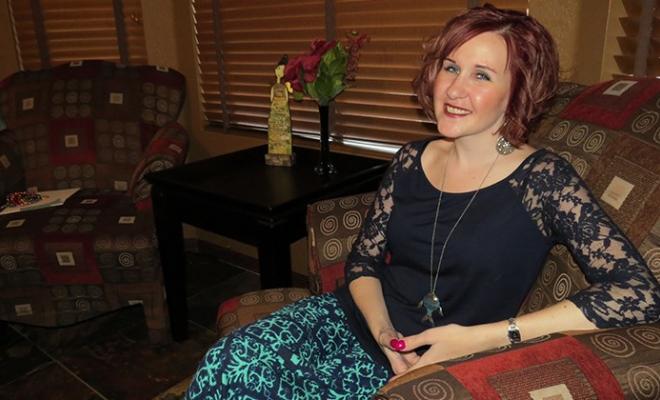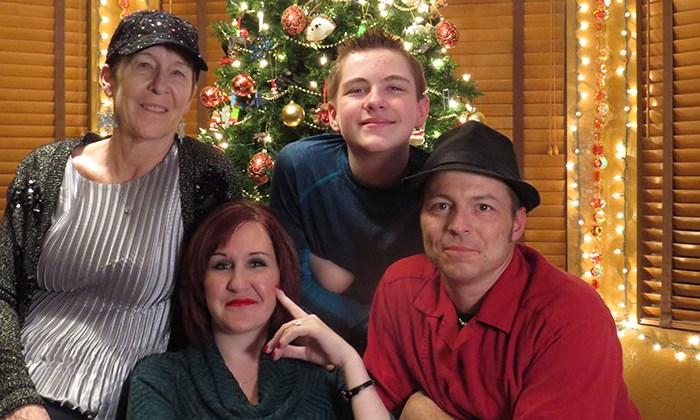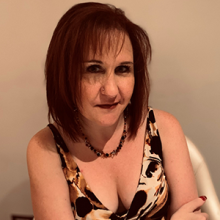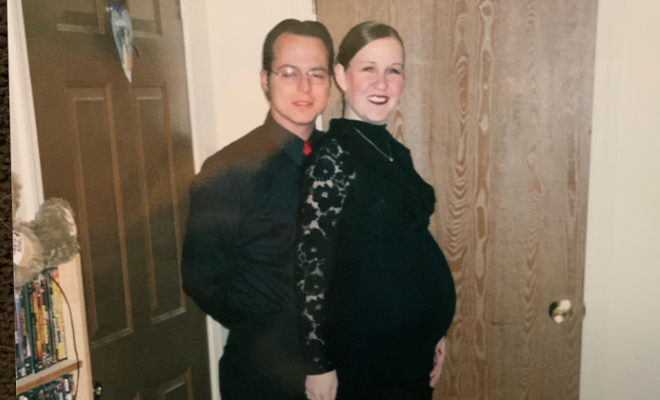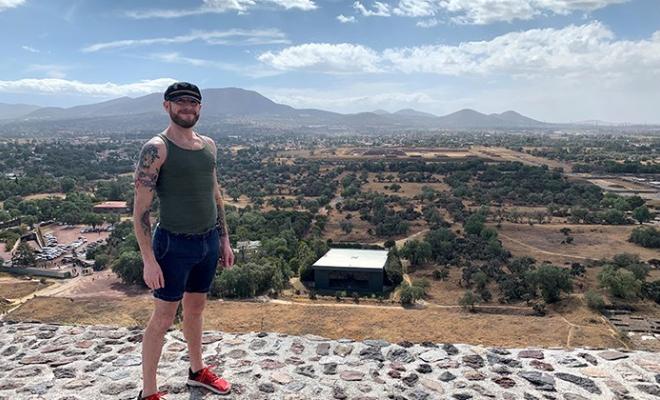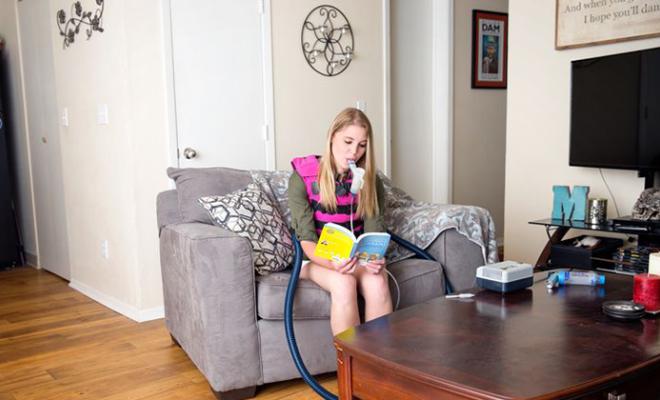How many times have you heard the phrase, “Well, you don't look sick.” While most times in my life this statement has been meant as a compliment, it sometimes felt very invalidating in terms of what I actually go through as a CF patient. There are so many things that CFers experience that no one ever actually sees! Of the experiences nobody can see with their eyes -- for me -- many were quite traumatizing, leaving invisible scars on my psyche and heart.
Growing up with any chronic illness can cause trauma for a child. This is especially true for me and my CF.
Growing up in and out of hospitals had a profound effect on me. Being taken out of my home for often weeks at a time and being brought to a place filled with all types of unpleasantries is not only scary, but often lonely. Add in the plethora of tests, poking, prodding, intimate questions, and lack of actual rest (the hospital is one of the worst places to try and get good rest), and you create feelings of fear and insecurity that seem to build upon themselves the longer you have to do it. Granted, I've created strong, meaningful relationships with the people on my care team, yet the hospitalizations are still traumatic.
For instance, when I was 3 years old, a nurse broke a needle off in my leg. This resulted in a full-blown clinical phobia of needles for me. Having to constantly face this fear, without a choice in the matter, was a terrifying, ongoing struggle for me. For other people with CF, they may face anxiety associated with pulmonary function tests. The expectation of blowing a good FEV1 is akin to a weight loss journey where the number on the scale can make or break your day. That number can determine whether you go home to your family or not. And these are some of the easier procedures that one goes through in the course of living with CF.
Then, you have to deal with the outside world -- the social aspect of being chronically ill. Personally, school was hell for me when I was younger. In an effort to educate my peers -- with the hope that knowledge would be empowering and comforting to others -- my mother would visit my classroom at the beginning of the school year to “educate” my peers about my condition. Despite her good intentions, this ultimately backfired. I remember feeling even more exposed.
At least if people didn't know about my illness, I could try to hide it. Once it was out there though, I was subject to vicious ridicule, teasing, and bullying.
I've heard it all - from the general teasing and never being picked for team activities, to the more pointed bullying and torment of walking down the hall and hearing some random child yell, “Here comes the disease girl,” watching the other students part like the Red Sea. This type of ongoing ridicule left invisible, permanent scars. These scars have carried over into so many areas of my life. At times, they have left me feeling lonely, sad, insecure, and alienated. The feelings are tough to deal with when brought on by classmates, but I've also faced trauma from interactions with family and friends, too.
As I got older, I became more aware of how my CF affected my family. I began experiencing stress when I'd notice my parents' stress due to my illness. Ultimately, and with age, I realized that my CF made life difficult for my family. I became more cognizant of the financial burden that my CF caused. I started to pick up on my parents' emotional distress brought on by finances and balancing life while I was in the hospital. This especially came up whenever my sister, who also had CF, was not in the hospital at the same time as me, and how difficult this was for my parents. I became able to identify my parents' emotional toll and guilt when I was sick or being bullied. I saw the helplessness in their eyes when they realized that none of it was in their control, and they just had to sit by, watch things unfold, and try to support me the best they could while fending off their own stress, guilt, and grief. In turn, I often felt guilty about the effects that my CF had on my family. It also hurt to find out years into adulthood that my grandfather chose not to get close to me or my sister because, “he did not want to get attached if we were just going to die.”
I think one of the things that took the biggest toll on my mental state was having the idea constantly reinforced that I was not going to live a full life, in terms of quality or quantity. It began with my father telling people that when I was born, he was told not to bother enrolling me in school because I'd probably die by age 8. Later, age 8 became age 13. Then there was the expectation that I would not live past 18. This type of information -- reinforced by people around me, literature, and the experience of other CF families -- has been a very disturbing thing to have rolling around in my head for my entire life. Not only is the thought, itself, terrifying, but it changes one's plans for the future, or lack thereof. Ultimately, the thought that I may not live a long life, changed the way I see the entire world.
Fear, frustration, anxiety, loneliness, grief, guilt, isolation, alienation, bullying, anger, hurt, lack of self-confidence, insecurity, body image issues, sadness, home sickness, unsureness, lack of stability, fear of the loss of friends and family with and without CF are all unseen struggles that most people never realize that I'm fighting with along with the physical symptoms of CF.
The unseen traumas caused by CF changed who I am. For anyone else in a similar situation, it is up to each individual to decide if that change will be for better or worse.
I have struggled, and still do, with all of those unseen traumas and more. However, I have gotten through it all with the love and support of my family and true friends! I'm hoping that this reaches those of you out there with the message that you are not alone! From trauma can come great growth, strength, bravery, wisdom, and resilience, and nothing is ever set in stone. Breathe easy, friends.
Interested in sharing your story? The CF Community Blog wants to hear from you.

